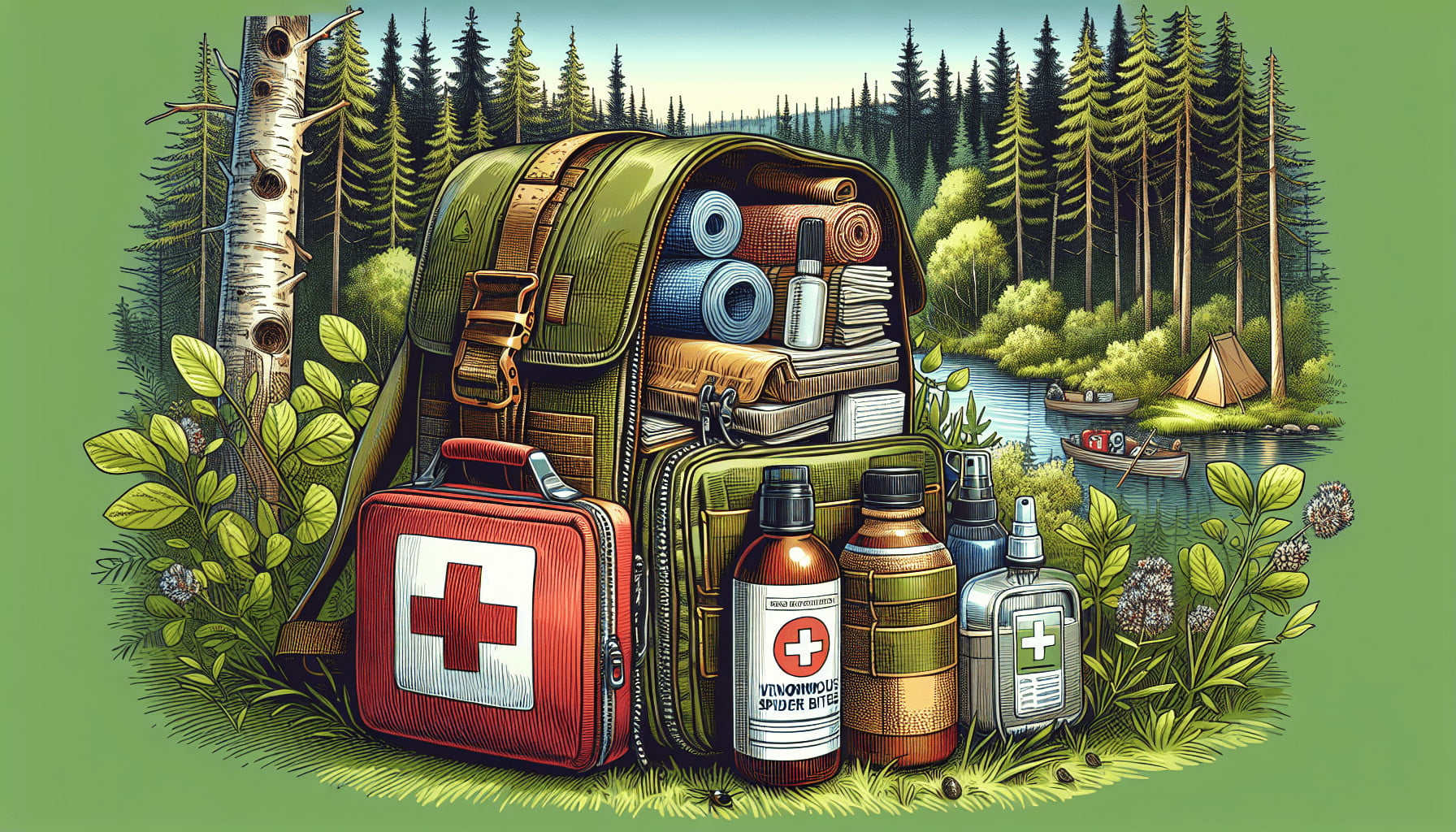Have you ever worried about encountering venomous spiders while out camping? Whether you’re a seasoned outdoor enthusiast or a first-time camper, understanding how to stay safe from these eight-legged creatures can significantly enhance your experience.

Understanding Venomous Spiders
Common Types of Venomous Spiders
Many people have a natural fear of spiders, but not all of them are actually dangerous. The ones you do need to be cautious about include Black Widows, Brown Recluse, and Hobo spiders. Let’s break down the specifics so you can identify them:
| Spider | Appearance | Geographical Location | Venom Characteristics |
|---|---|---|---|
| Black Widow | Shiny black with a red hourglass on the abdomen | Widely distributed in the USA | Neurotoxic, affects nerves and muscles |
| Brown Recluse | Light to dark brown with a violin-shaped mark on its back | Central and Southern USA | Cytotoxic, causes tissue damage |
| Hobo Spider | Brown with chevron marks on the back | Northwestern USA | Possible necrotic venom, similar to Brown Recluse but often less severe |
Symptoms of Venomous Spider Bites
Spotting a venomous spider bite early can make all the difference. Symptoms can vary based on the spider and individual reactions but generally include pain, redness, and swelling at the bite site. Black Widow bites typically cause muscle cramps and restlessness, Brown Recluse bites can lead to a blister surrounded by a blue-grey area, and Hobo spider bites might cause headaches and fatigue.
Prevention Strategies
Choosing Your Campsite
Location is key in avoiding venomous spiders. Always set up your camp in a clean, dry area, away from woodpiles, thick vegetation, and dark corners where spiders like to hide. Clearing the ground of debris before setting up your tent can also help deter spiders from your camping area.
Proper Gear
Wearing the right gear can serve as your first line of defense. Long sleeves, pants, gloves, and closed-toe shoes create barriers between you and potential spider encounters. Also, consider treating your clothing and gear with a permethrin spray, which repels spiders and insects alike.
Keeping Your Campsite Tidy
A messy campsite is an open invitation for spiders. Make it a habit to store your food properly, secure your trash, and keep your belongings off the ground. Ensuring your tent is sealed properly when not in use can also keep these unwanted guests out.
Safety Tips While Camping
Inspecting Your Gear
Before settling in for the night, it’s essential to inspect your gear. Shake out your sleeping bag, blankets, and shoes to ensure no spiders have taken refuge. Checking your tent for any gaps or holes that might allow spiders to creep in can provide extra peace of mind.
Using Repellents
While repelling spiders isn’t as straightforward as repelling mosquitoes, certain natural or chemical repellents can be effective. Essential oils like peppermint, lavender, and eucalyptus can deter spiders. If you prefer commercial solutions, insect repellents with DEET or permethrin sprays can be very effective.
Educating Your Camping Group
Knowledge is power, especially when it comes to safety. Brief your fellow campers about the risks and what to look for. Make sure everyone knows how to identify common venomous spiders and how to respond if bitten.
Responding to Spider Bites
Immediate Actions
If you or someone in your group is bitten by a venomous spider, immediate actions are crucial. First, clean the area with soap and water to reduce infection risk. Apply ice to control swelling and elevate the bite site if possible. Over-the-counter pain relievers like ibuprofen can help manage pain.
Seeking Medical Attention
Even if symptoms initially appear mild, seeking medical attention is important. Describe the spider to the healthcare provider if possible. Don’t hesitate to call emergency services if severe symptoms like difficulty breathing, intense pain, or muscle cramping occur.
Long-Term Care
Following up after initial treatment is essential. Some spider bites can result in ongoing symptoms or complications, so keep an eye on the wound and follow any healthcare provider’s instructions. Don’t ignore persistent symptoms or significant changes around the bite area.

Myths and Misconceptions
Real Threat vs. Perceived Danger
It’s natural to fear what you don’t understand, but not all spiders are out to get you. Many harmless spiders are misidentified as venomous, leading to unnecessary panic. Learning to distinguish between harmful and harmless species can reduce anxiety and help you focus on enjoying your camping trip.
Home Remedies
There’s a lot of misinformation out there about treating spider bites. Before trying any home remedies like applying a baking soda paste or using essential oils directly on a bite, it’s advisable to consult a medical professional. Some home remedies might actually do more harm than good.
Misidentified Bites
Many skin irritations or wounds attributed to spider bites are actually caused by other issues, such as infections or allergic reactions. Before jumping to conclusions, consider other possible causes and seek medical advice for an accurate diagnosis.
Conclusion
So, next time you pack up your gear for a camping adventure, remember that knowledge and preparation can keep you safe from venomous spider bites. Understanding the common culprits, practicing prevention strategies, and knowing how to respond effectively can ensure your outdoor experience is both enjoyable and safe. Plus, sharing this information with your camping group could save someone a lot of discomfort and potential danger. Happy camping!
Taking these precautions might seem like a lot of work, but trust me, it’s well worth it. Being prepared just might make the difference between a memorable adventure and a spider-related mishap.
